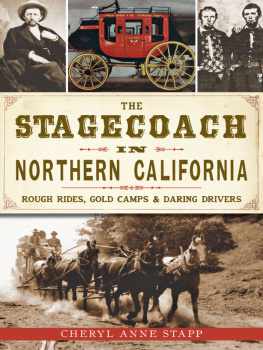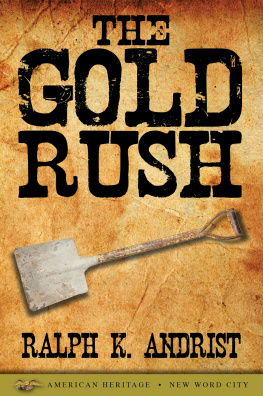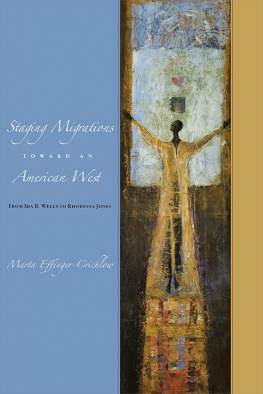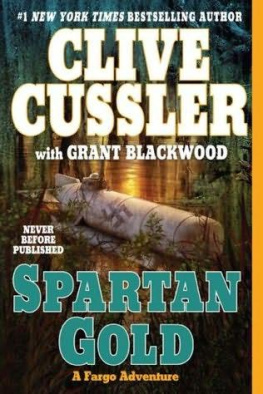
SIMON & SCHUSTER
Rockefeller Center
1230 Avenue of the Americas
New York, New York 10020
Copyright 2002 by Philip L. Fradkin
All rights reserved,
including the right of reproduction
in whole or in part in any form.
S IMON & S CHUSTER Source and colophon are
registered trademarks of Simon & Schuster, Inc.
Visit us on the World Wide Web:
http://www.SimonSays.com
Fradkin, Philip L.
Stagecoach, Wells Fargo and the American West / Philip L. Fradkin.
p. cm.
1. Wells, Fargo & CompanyHistory. 2. CoachingUnited StatesHistory. 3. Express serviceUnited StatesHistory. 4. West (U.S.)History. I. Title.
ISBN-10: 0-7432-2762-X
ISBN-13: 978-0-7432-2762-9
Portions of the letters from Louis McLane to his wife Sophie are published with the permission of the Maryland Historical Society, Baltimore, Maryland.
The Wells Fargo Wagon song from Meredith Willsons The Music Man by Meredith Willson, 1957, 1959 (Renewed) FRANK MUSIC CORP. and MEREDITH WILLSON MUSIC, all Rights Reserved.
F OR P ATRICIA

F O R E W O R D
by
J. S. Holliday
A S YOU read Philip Fradkin's vivid history of Wells Fargo & Company, the questionmore likely an exclamationwill surely come to mind: where else but in California and the West?! In other states and other nations, a bank brings to mind an institution managed by stern-faced functionaries in starched collars. The name Wells Fargo evokes the image of a horse-drawn, dust-covered stagecoach rumbling into town to deliver, on time, a strongbox heavy with customers' gold. A robust scene of Wells Fargo agents keeping their word, their schedule, and their customers' confidence in a time and place that often overlooked values like trust and dependability.
The origins of that now-classic image derive from the validity and longevity of the company's history, here colorfully recounted. How risk-takersminers, merchants, speculatorsexpanded the mining frontier from California eastward to Virginia City, Nevada and finally to Deadwood, Dakota Territory. How they entrusted their mail and treasure to the expressmen and stagecoach drivers of Wells Fargo. How by 1865 the company had, in the words of a newspaper editor, grown very much into the heart and habit of the people from the Rocky Mountains to the Pacific Coast.... It is the Ready Companion of civilization, the Universal Friend and Agent of the miner, his errand man, his banker, his post office.... Its offices are in every town, far and near. And how, as an earlier historian suggested, the express company known as Wells Fargo became the nearest thing to a universal service company ever invented.
Central to the story of Wells Fargo and the American West was the curious demography of that masculine world, a society and economy shaped by the scarcity of women, the rarity of families. This gender imbalance offered a vast and profitable business for Wells Fargo and its competitors, delivering letters from scores of thousands of men out west to their families back eastfrom mining camps in California and Colorado, Montana and Arizona; from instant cities like San Francisco and Denver; from boomtowns like Helena and Tombstone. Equally important, these men also entrusted Wells Fargo to deliver moneybills of exchangeto their families in the eastern states, money gained from who-knew-what enterprise, maybe a mining claim, maybe a gambling table, maybe a business that would never be countenanced in Michigan or Maryland. These letters and remittances tied the West to the East long before the transcontinental railroad in 1869.
With broad perspective and intimate detail, Fradkin encompasses the 150-year history of this robust company, which prospered even in its early decades, in an era he describes as an entrepreneurial free-for-all, a gouging, spitting, mud-wrestling match between unrestrained capitalists, whose only rule was to remain in the ring as long as possible. In such a society, dedicated to the self-interest of fortune hunting, and an economy energized by the exuberant acceptance of everything forbidden back in the States, one of the company's founders, stern-visaged Henry Wells, confessed: I am called sanguine at home [New York City], but I am an old fogey here [in San Francisco] and considered entirely too slow for this market.
Yet slow proved wise. When other express companies and banks disappeared in the searing flames of speculation (Adams & Company in 1855, William C. Ralston's Bank of California in 1875), Wells Fargo met the demands of its depositors and gained new stature, while its hundreds of messengers carried mail, gold and silver on stagecoaches across the vastness of the West, more swiftly and more dependably than the United States Post Office. Nor were the company's agents in scores of offices laggardly in providing banking services to meet the needs of the region's in-a-hurry, risk-taking population. In all, Fradkin's scholarship and range of observation give substance to the judgment of an earlier historian that Wells Fargo became the single most widespread institution in the early West, being even more omnipresent than the U.S. government.
In describing this parallel growth of the company and the West, Fradkin includes (with contagious pleasure) a review of the richest source of western folklore which Hollywood has woven into our national mythology. In his chapter Crime and Punishment, he clarifies and corrects oft-told tales of lawmen, robbers, lynchings, gun battles, bank heists, and stagecoach holdups. And throughout his narrative, he weaves in memorable descriptions by none less than Horace Greeley and Mark Twain, and delightful surprises, including the revelation at his death that one of the most competent of all stage drivers wasa woman!
Like the economy of California and the West, the company's prosperity in the twentieth century depended not on mining but on agriculture, not on gold and silver torn from the earth but on new treasures nurtured in orchards and fecund soil: peaches and oranges, melons and berries delivered unspoiledfresh!by Wells Fargo's specially designed refrigerated railcars coupled to fast passenger trains. This service carried thousands of tons of delicate western fruits and vegetables to eastern consuming markets. Thus, whether by stagecoach or Fargo Fast freight cars, Wells Fargo secured its reputation for speed and reliability.
Through the many decades of boisterous prosperity and perilous crises, Wells Fargo adapted to change and challenge. By the first decades of the twentieth century, the company's ocean-to-ocean rapid freight delivery system utilized numerous regional railroads and several urban distribution centers, from which horse-drawn wagons (and soon trucks) delivered to city and countryside the nation's bountysalmon from Seattle, grapefruit from Florida, flour from Minnesota, cheese from Wisconsin, and a myriad of consumer goods from the mail order catalogs of Sears, Roebuck and Montgomery Ward.
Then, in 1918, the wonderfully profitable express business felt the power of Washington, D.C. In that year the Wilson Administration forced Wells Fargo and its competitors to form the federally governed American Railway Express Company. After sixty-six years, from stage-coach to wagon to truck, Wells Fargo gave up its express business and concentrated on its future as a bank, enhanced by its remarkable past.









